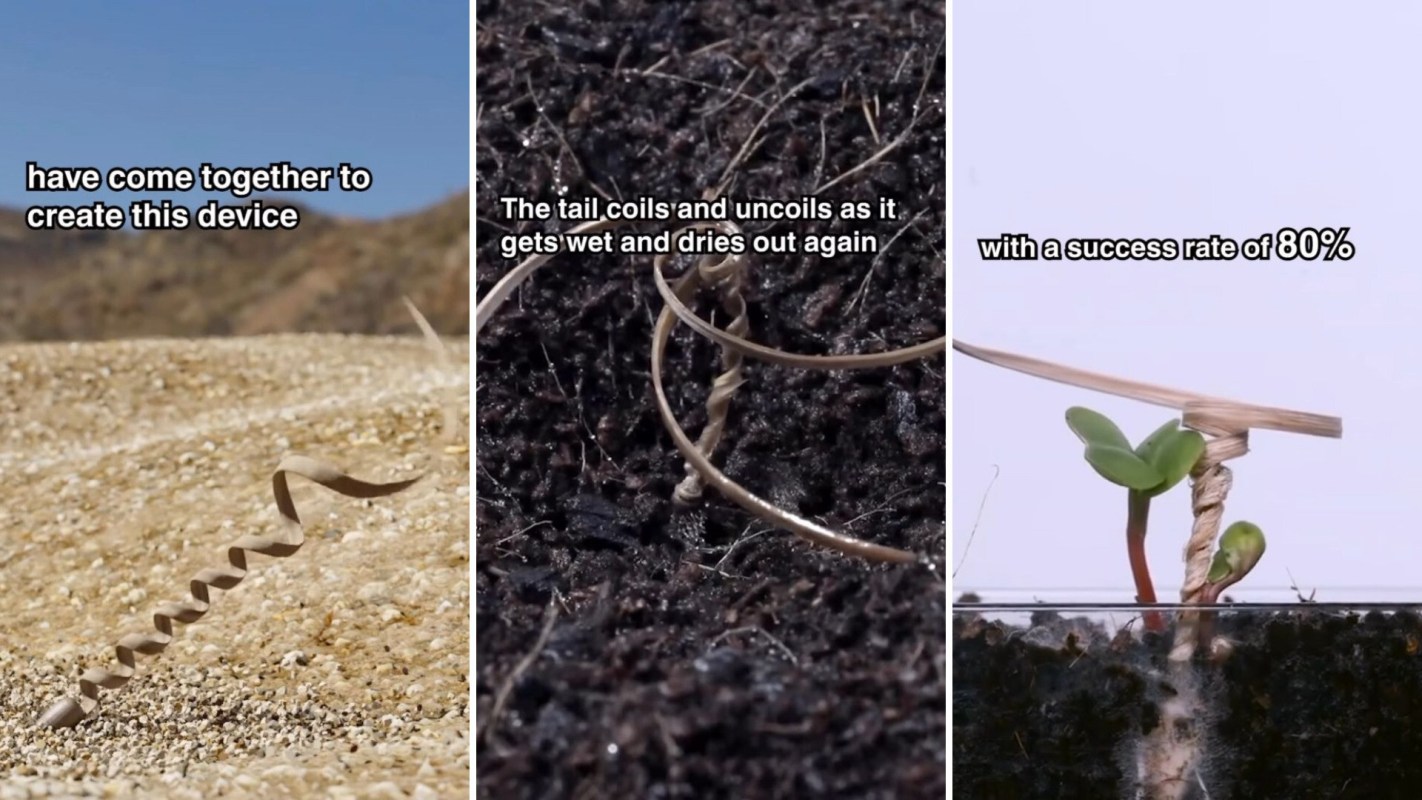Scientists at Carnegie Mellon University have developed a new device that could completely change the way forests are regenerated and crops are planted, making it easier than ever for seeds to take root in the ground.
This news comes to us via sustainability content creator Sam Bentley (@sambentley), who made an informative video on his Instagram page about the new device and how it works.
In his clip, Bentley explains that the device is "designed to mimic self-burying seeds."
"The tail coils and uncoils as it gets wet and dries out again, allowing the seed at the head to drill itself into the ground," he adds. "The device is made of wood, making it affordable, biodegradable, and naturally warps when exposed to moisture."
The device is a product of Carnegie Mellon University's Morphing Matter Lab, which explains on its webpage that the biodegradable seed carrier's design was "inspired by the self-drilling behavior of Erodium seeds." Erodium is a genus of flowering plants that closely resemble geraniums.
"The seed carriers had an 80% success rate of getting seeds into the ground on flat land, reducing the risk of them blowing away or being eaten by animals," the seed carrier's creators go on to explain. "Under the same terrain conditions, the natural Erodium seed's success rate was 0%."
Commenters on Bentley's video had plenty of excitement to share.
"Wow, that's different and clever!" one user wrote.
"This is so cool!" another added. "Sometimes humans are alright."
At the present time, the project is still in its early stages, and researchers are working on a way to produce the seed carriers at scale. However, the implications of such an invention could be huge.
Regenerating forests via dropping seed packages from drones flying overhead is an existing practice currently being undertaken by a company called Mast Reforestation, which operates in the western United States. Since that company's mission is to supplement proven forestry practices with new technology and innovations, a new type of seed vessel that greatly increases each seed's chances of survival seems like it could be a boon to Mast's efforts.
Join our free newsletter for weekly updates on the coolest innovations improving our lives and saving our planet.









